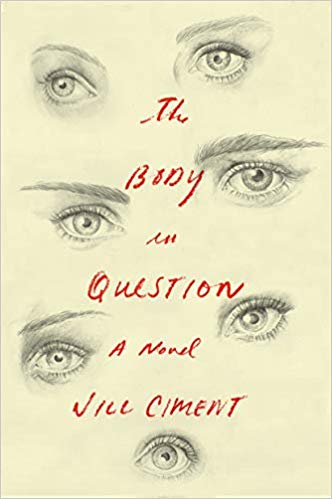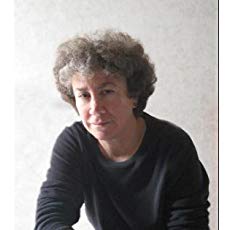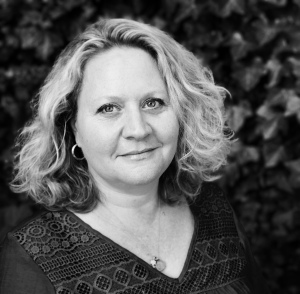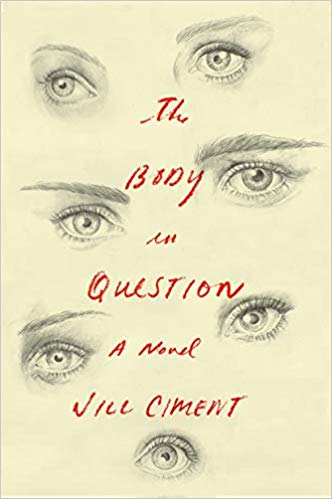Jury duty gets a bad rap.
That’s why Hannah, the 52-year-old woman at the center of The Body in Question, the new novel by Jill Ciment, readies her most persuasive excuses as she waits with other prospective jurors at a courtroom in central Florida.
But when finally asked for any reason she would not be able to serve, she stays quiet, surprising herself. Perhaps, she surmises, she needs a break from caretaking: her responsibilities toward her 86-year-old husband, an award-winning former journalist, have become onerous as he has aged. Perhaps it’s because her own career as a photographer has stalled. Perhaps it has to do with another potential juror—a male professor of anatomy she knows only as F-17.

Soon enough, Hannah, who is now juror C-2; the man, juror F-17; and five others are sequestered to sit in judgement on a grisly murder trial. A teenager named Anca is accused of killing her baby brother, but motives are muddy and there is every reason to second-guess both her guilt and her innocence. On the witness stand, Anca’s shade-too-smooth twin sister and her go-along-to-get-along boyfriend offer plenty of doubt that the defendant acted alone. That is, if the jurors are paying as much attention to what’s notbeing said as to witnesses’ spoken testimony.
This is Hannah’s gift: her years behind the camera have trained her to notice details that escape others. Her close observations come into play watching a videotaped confession, as when she notes the placement of the recorder behind the detective, rather than behind the teenage defendant.
Ciment writes: “The choice of where to place a camera in an interrogation room may seem immaterial to the other jurors, but not to C-2. Had the camera been behind Anca, had the screen been filled with the threatening body language of the detective, Anca’s mumbled admissions might have looked coerced.”
But the other jurors don’t move through the world as Hannah does, cross-examining her own perspective and reflexively questioning what seems obvious to anyone else. Ciment, a professor of English at the University of Florida and the author of eight other books (one, Heroic Measures, was later made into a film), assures that readers follow Hannah’s sight line, but that doesn’t mean Hannah earns our mercy—or her own. In fact, toward herself she is at her most pitiless: the affair she pursues with F-17 during their sequestration, she believes, is “one last dalliance” before middle age permanently eclipses her attractiveness, which she acknowledges was marginal even in her prime.
The terrible crime and the complex relationships at the heart of the murder case could have filled the pages of an entire novel—in another author’s hands, it would have been a smart and engrossing legal thriller on its own. But Ciment’s layered and subtle narrative delves deeper. Readers gradually understand that Hannah is being closely observed and harshly judged by the other jurors for her relationship with F-17. She may not be the defendant, but there are an abundance of reasons for her to feel defensive.
It’s worth noting that Hannah’s husband’s “gift as a journalist had been his canny ability to suss out secrets from diplomats and generals. Age has slowed him down, however, and he is the last to discover his wife’s betrayal. Even though Hannah had decided early on that she will not abandon her husband “in the woolly, dim, mute isolation of old age,” the revelation comes close to accomplishing exactly that. The trial, as it turns out, was simply the precursor to the couple’s own, very intimate trial—it, too, a matter of life and death. Their story unfolds in the last third of the book, in which elements of profound loss mingle with aesthetic inspiration.
As a photographer, each stage of Hannah’s work broke boundaries: when she tired of one subject or style, she forced herself to produce something new. Not being derivative—even avoiding being derivative of herself, as interest in her work grew—is her overarching artistic concern. It’s not a leap to wonder if this may be what impels Ciment, too—because she created a novel that is wholly original, unexpected, and surprising in the most welcome ways.
Ciment, Jill. The Body in Question.
About the Author:
 Jill Ciment was born in Montreal, Canada. She is the author of Small Claims, a collection of short stories and novellas; The Law of Falling Bodies, Teeth of the Dog, The Tattoo Artist, and Heroic Measures, novels; and Half a Life, a memoir. Heroic Measures is the basis for the film 5 Flights Up starring Diane Keaton and Morgan Freeman. She has been awarded a National Endowment for the Arts, a NEA Japan Fellowship Prize, two New York State Fellowships for the Arts, the Janet Heidinger Kafka Prize, and a Guggenheim Fellowship. Ciment is a professor at the University of Florida. She lives in Gainesville, Florida.
Jill Ciment was born in Montreal, Canada. She is the author of Small Claims, a collection of short stories and novellas; The Law of Falling Bodies, Teeth of the Dog, The Tattoo Artist, and Heroic Measures, novels; and Half a Life, a memoir. Heroic Measures is the basis for the film 5 Flights Up starring Diane Keaton and Morgan Freeman. She has been awarded a National Endowment for the Arts, a NEA Japan Fellowship Prize, two New York State Fellowships for the Arts, the Janet Heidinger Kafka Prize, and a Guggenheim Fellowship. Ciment is a professor at the University of Florida. She lives in Gainesville, Florida.
About the Reviewer:
 Alison Buckholtz is author of Standing By: The Making of an American Military Family in a Time of War (Tarcher/Penguin). She wrote the “Deployment Diary” column on Slate.com from 2009-2010, and her other articles and essays have been published in the New York Times, New York Magazine, Real Simple, Parenting, Washingtonian Magazine, Salon.com and many other publications. As an advocate for military families, she has appeared on NBC Nightly News, NPR, and in national news stories. Her L.A. Times op-ed, “An ‘It Gets Better’ for the troops,” was the inspiration for a national public service announcement campaign about military suicides.
Alison Buckholtz is author of Standing By: The Making of an American Military Family in a Time of War (Tarcher/Penguin). She wrote the “Deployment Diary” column on Slate.com from 2009-2010, and her other articles and essays have been published in the New York Times, New York Magazine, Real Simple, Parenting, Washingtonian Magazine, Salon.com and many other publications. As an advocate for military families, she has appeared on NBC Nightly News, NPR, and in national news stories. Her L.A. Times op-ed, “An ‘It Gets Better’ for the troops,” was the inspiration for a national public service announcement campaign about military suicides.
She received an M.A. in English Literature from the University of Virginia and a B.A. in English Literature (Honors, Phi Beta Kappa) from the University of Massachusetts, Amherst. She also completed a year of undergraduate study at Trinity College, Dublin. In 1997-98 she lived in Jerusalem, Israel as a recipient of a Dorot Foundation postgraduate fellowship. She now lives in the Washington, DC area with her husband, an active-duty Naval officer, and two children.
